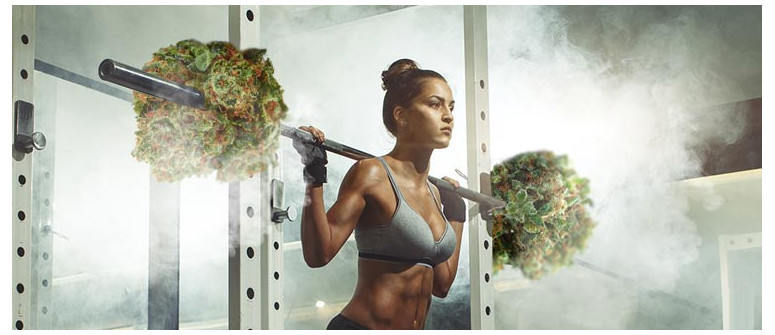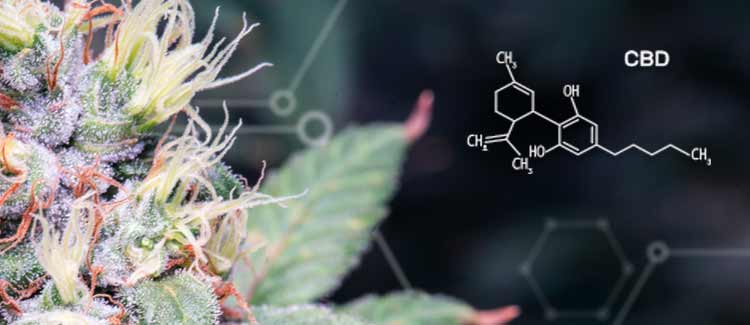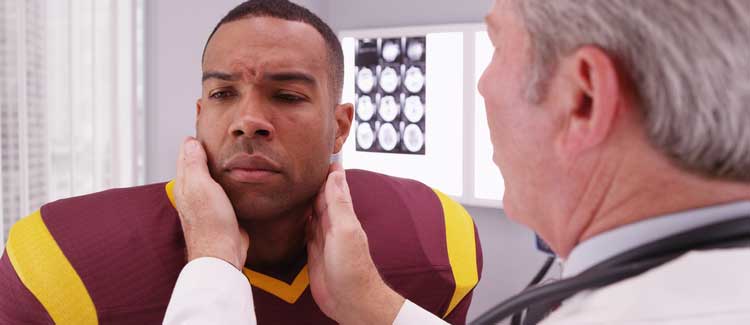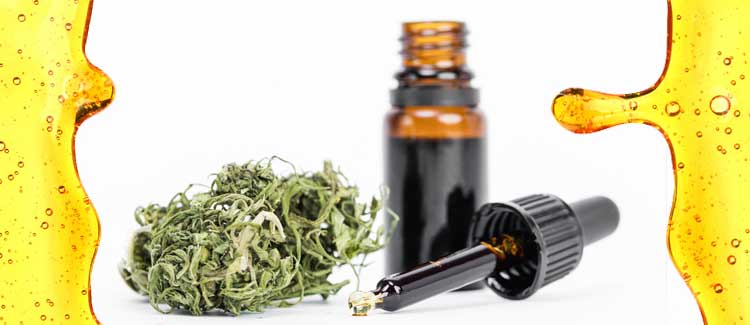Can cbd help you build lean muscle?

CBD could be a valuable tool for athletes and gym-goers. Find out which qualities of CBD make it a promising adjunct for building lean muscle.
Athletes and active individuals usually have customized daily supplement regimens to help them meet their fitness goals and increased nutritional demands. Often among this arsenal of molecules are multivitamins, amino acids, minerals, and additional macronutrients such as protein and carbs.
If your plan is to build high-quality lean muscle, then, in addition to taking some of the supplements mentioned above, you’ll also require a balanced diet and adequate sleep. There’s another piece of the puzzle that may be able to help you build muscle over time, and recover quicker. The properties of CBD anecdotally make it an appealing prospect to help gym-goers of all experience levels. The molecule may have anti-catabolic effects, may boost sleep quality, and could modulate the inflammatory response.
WHAT IS CBD?

CBD is one of over 100 cannabinoids found within the cannabis plant. Some individuals elect to use cannabis for its high—a phenomenon mainly catalyzed by the cannabinoid THC. However, many members of the cannabinoid family, including CBD, are non-psychotropic, and thus don’t produce a high.
CBD is fairly well-researched in terms of cannabinoids, and has gained serious traction as a supplement following groundbreaking mainstream media attention. The molecule has turned many heads in preclinical and clinical settings, displaying anti-inflammatory, antioxidant, neuroprotective, and anti-seizure effects.
HOW DOES CBD AFFECT THE BODY?
CBD achieves some of its pharmacological actions by influencing the endocannabinoid system, a series of receptors expressed throughout the immune system, central nervous system, skin, digestive system, and elsewhere. This system is regulated by internal cannabinoids, known as endocannabinoids, that bind to CB1 and CB2 receptor sites. Cannabinoids such as CBD share a similar molecular structure to these internal chemicals, and are therefore able to exert effects via the endocannabinoid system.
CBD has a low affinity for both the CB1 and CB2 receptors, but is still able to influence them to some degree. For instance, the cannabinoid has the ability to block CB1 receptors and prevent endocannabinoids from being reabsorbed. The cannabinoid also binds to other receptors in the body, including serotonin and vanilloid receptors.
Some of these mechanisms of action are precisely why CBD may be beneficial for athletes and gym-goers looking to increase muscle mass.
Aside from providing symptomatic relief, CBD is also used by many as a daily supplement, much like a vitamin. If a person becomes deficient in a vitamin, mineral, or other nutrient, health issues can arise. The same can be said for endocannabinoids. The term clinical endocannabinoid deficiency (CECD) describes a lack of internal cannabinoids, a state believed to be associated with conditions such as migraine, fibromyalgia, and irritable bowel syndrome. Although most people naturally produce enough endocannabinoids, those with CECD may benefit from using cannabinoids like CBD.
HOW CAN CBD HELP BUILD LEAN MUSCLE?
There are two metabolic states in the body that are important in regard to building muscle.
The anabolic state involves growth, and is fueled by building blocks such as amino acids and proteins that gradually form larger structures. This process can be maintained by a caloric surplus and adequate protein intake. The result is an increase in lean muscle.
The opposite of anabolism is catabolism. The catabolic state involves the breaking down of these structures. Stored fat, carbohydrates, and proteins are used to meet energy demands. Catabolism of fat is the goal of many gym-goers, and can be achieved via a slight caloric deficit and heightened protein intake. However, an excessive caloric deficit can lead to loss of muscle mass.
The key to building muscle is a fine balancing act between these two states. The act of lifting weights breaks down muscles fibres and drives a short-term catabolic state. This breakdown, followed by adequate fuel and nutrients, triggers the body to lay down new muscle fibres in greater number and increased density.
So, where does CBD come into the picture? Well, the molecule doesn’t work in a directly anabolic fashion. However, it could help to prevent excess catabolism, and in turn helps to maintain muscle mass and prevent muscle loss.
If you have any bodybuilding friends who are extremely dedicated to maintaining and building muscle, you’ll notice that they eat around 8 small meals throughout the day, as opposed to fewer larger ones. This is done to prevent catabolism of tissues setting in. CBD may have a similar effect. It won’t contribute directly to muscle tissue like amino acids or protein, but it could protect these structures from catabolic states induced by hormones such as cortisol.
Cortisol is a stress hormone released by the adrenal gland that works to control mood, motivation, and fear. Although it’s essential in specific quantities, excess amounts induced by chronic stress can have a damaging effect, leading to muscle weakness and muscle breakdown. Research published in the journal Annals of Surgery demonstrates that acute exposure to catabolic hormones, including cortisol, triggers a net catabolism of human muscle protein.
CBD can help to buffer against this catabolic effect by significantly lowering cortisol levels, in turn protecting muscle proteins from hormonally induced breakdown. Research published in the Brazilian Journal of Medical and Biological Research investigated the effects of CBD on cortisol levels in 11 volunteers. The subjects received CBD at doses of 300mg, 600mg, and placebo over two experimental sessions. It was found that CBD significantly lowered cortisol levels, leading the researchers to conclude that CBD interferes with cortisol secretion. Of course, this is a very small study but shows promise for further research.
OTHER WAYS CBD AFFECTS LEAN MUSCLE BUILDING
Decreasing catabolic hormones is one effect that CBD has upon lean muscle building, but the molecule produces other effects that work in more indirect ways.
CBD CAN REDUCE INFLAMMATION

Numerous studies have shown CBD to decrease inflammation. Building lean muscle means hitting the gym and undergoing a program consisting of strength training and hypertrophy training. Hypertrophy training involves high amounts of reps of low weight. This type of training is designed to maximise time under tension, and can leave the muscles feeling incredibly sore and broken.
Inflammation is one factor that contributes to this feeling. It just so happens that administration of CBD has been shown to be effective at reducing acute inflammation and swelling.
CBD MAY IMPROVE SLEEP
Sleep is absolutely key to building muscle. It’s a deeply anabolic state in which the body repairs tissue. Growth hormone is also released by the pituitary gland during sleep, a molecule that plays an important role in growth, metabolism, cell repair, and exercise performance. Animal studies have shown that CBD has a positive effect on the sleep-wake cycle, and appears to increase total sleep time.
CBD has also been shown to be effective against anxiety, a condition that can significantly impact sleep.
CBD MAY IMPROVE YOUR MINDSET
Whilst building muscle is a primarily physical pursuit, it also involves a strong and disciplined mind. Dosing CBD may help to enhance your mood, motivate you, and make you work out harder and for longer periods.
The so-called runner’s high experienced by endurance athletes is described as an altered state of consciousness that sets in after intense exercise. The state is defined by euphoria and a sense of well-being, and is now partially attributed to endocannabinoids such as anandamide. Anandamide targets CB1 receptors—the same receptors THC binds to.
By blocking CB1 receptors, CBD causes anandamide to remain in the synaptic space for longer, allowing it to exert its beneficial effect. In this way, CBD may encourage a boost in motivation and mood both before and after hitting the gym.
HOW TO TAKE CBD

CBD can be taken at any time of day. Athletes might find it particularly beneficial to consume CBD after a workout to help soothe aches and pains. CBD bath bombs and salts can also be used for maximum effect.
CBD is available in many different forms, from oils and capsules to gummies and topical sprays. If you’ve never taken the cannabinoid before, start with a low dose to see how your body reacts, then slowly work your way upward.
.jpg)


.jpg)
